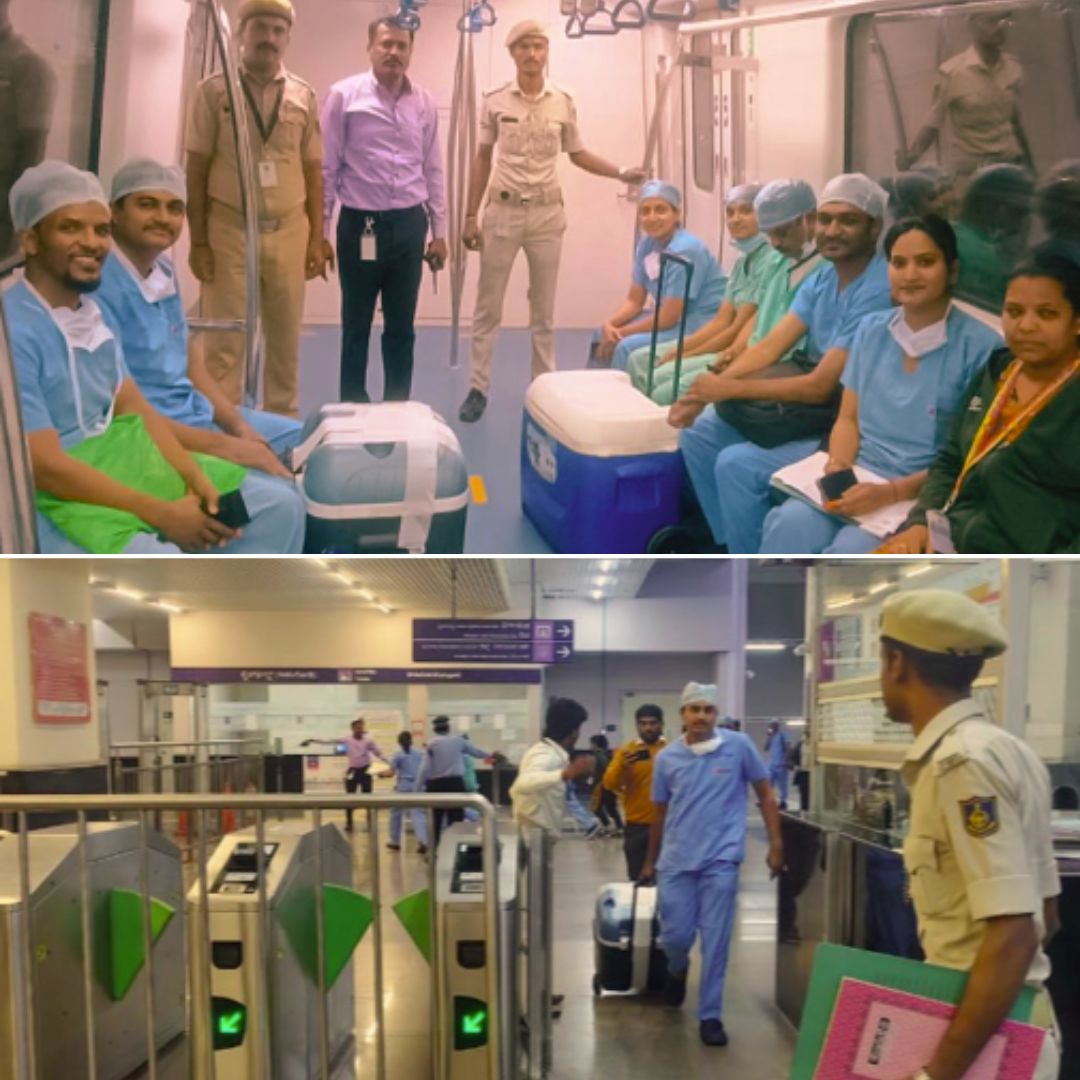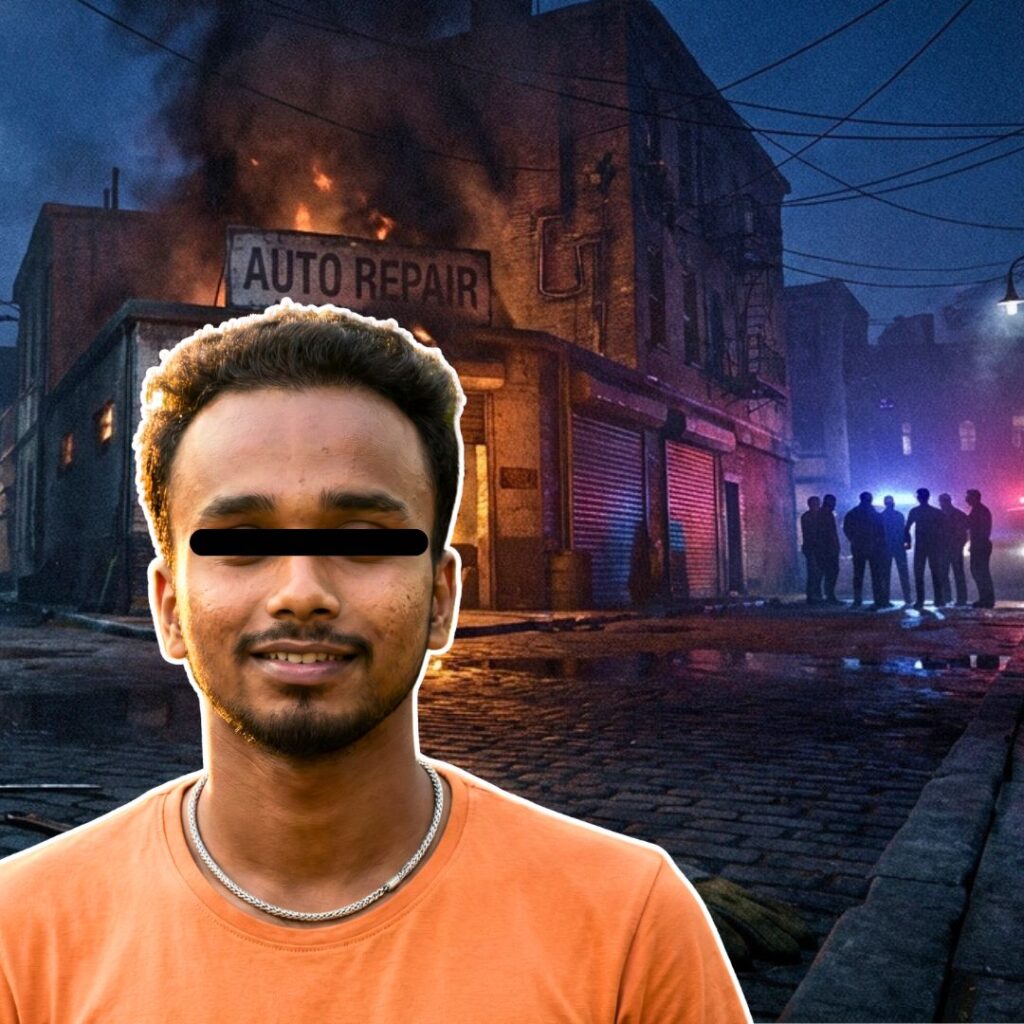Bengaluru’s Namma Metro made history on August 1, 2025, by transporting a donated human liver from Whitefield Metro Station to Rajarajeshwarinagar Metro Station on the Mysuru Road line for transplantation.
The liver was securely transferred by an ambulance from Vydehi Hospital to Whitefield, accompanied by a doctor and seven medical personnel. The metro journey began at 8:42 pm and ended at 9:48 pm, with dedicated metro staff and security facilitating smooth transit.
After reaching Rajarajeshwarinagar station, the liver was swiftly moved to Sparsh Hospital for the transplant procedure. This operation, supported by BMRCL and conducted under government guidelines, marks only the second known instance in India of organ transport via metro, showcasing an innovative and efficient use of urban infrastructure to save lives.
A Meticulously Coordinated Medical Journey
The success of this groundbreaking transportation hinged on intricate planning and cooperation among multiple stakeholders. Vydehi Hospital initiated the journey by dispatching the liver in a specialised ambulance, accompanied by a medical team including a doctor and seven staff members, to Whitefield Metro Station.
At the station, Assistant Security Officers (ASOs) and Namma Metro personnel took charge of the documentation and security screening process to ensure the organ’s safety. The liver was then loaded onto the metro train on the Mysuru Road line, with metro staff and additional security personnel escorting the medical team throughout the journey. Upon arrival at Rajarajeshwarinagar Metro Station after just over an hour of metro travel, local security teams facilitated the secure and immediate transfer of the liver back into a waiting ambulance.
The promptness and precision of these actions were vital for preserving the organ’s viability for transplantation, which took place at Sparsh Hospital shortly thereafter. BMRCL officials praised the operation as an exemplary model of public transport serving urgent healthcare needs.
Innovating Urban Infrastructure for Healthcare
This liver transport reflects a significant shift in utilising urban public transit beyond its conventional role. Amidst Bengaluru’s traffic congestion, rapid and reliable transport can save crucial minutes in organ transplant logistics, where time is often the difference between life and death. The Ministry of Housing and Urban Affairs and BMRCL’s guidelines laid the foundation for this operation, mandating strict protocols around security, hygiene, and coordination to ensure safety and timeliness.
Employing the metro system for organ transport not only increases speed but also reduces risks associated with road traffic delays. This operation follows a growing recognition of the need to integrate infrastructure innovation with healthcare delivery, representing a forward-thinking strategy that other metro cities across India may adopt. It sets a progressive precedent for smart urban planning aligned with essential social services.
The Logical Indian’s Perspective
Namma Metro’s pioneering role in organ transportation embodies how public utilities can rise to meet emergent societal challenges with empathy, diligence, and cooperation. Such initiatives deepen public trust in civic organisations’ ability to adapt creatively and respond swiftly to critical needs.
The Logical Indian views this development as a beacon of how kindness and collaboration can leverage technology and governance for the common good. Moving forward, it is essential to explore how other facets of urban infrastructure—whether transport systems, communication networks, or public spaces—can be mobilised for health and humanitarian purposes.
We encourage our readers to reflect on ways to foster more inclusive, compassionate urban ecosystems that prioritise human dignity and wellbeing.
ಮೊಟ್ಟಮೊದಲ ಬಾರಿಗೆ #NammaMetro ಮೂಲಕ ಯಶಸ್ವಿಯಾಗಿ ಅಂಗಾಂಗ ಸಾಗಣೆಯನ್ನು ನಡೆಸಲಾಗಿದೆ. ಹೆಚ್ಚಿನ ವಿವರಗಳಿಗಾಗಿ ಮಾಧ್ಯಮ ಪ್ರಕಟಣೆಯನ್ನು ಪರಿಶೀಲಿಸಿ. pic.twitter.com/tkxmfgi5Vc
— ನಮ್ಮ ಮೆಟ್ರೋ (@OfficialBMRCL) August 2, 2025










